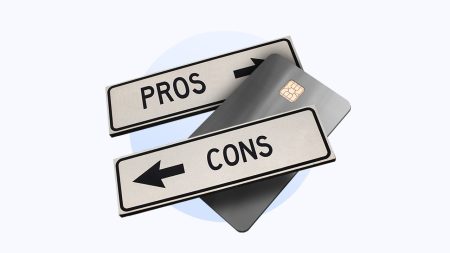Key takeaways
- Coding boot camps typically cost between $7,800 and $21,000.
- You can fund coding boot camps from your savings or with scholarships and loans, but you typically cannot use federal student loans.
- Completing a coding boot camp may boost your earning potential, but the programming market is currently volatile.
If you’d like to begin a career in technology but haven’t worked in the field before, attending a coding boot camp can give you the skills you need to get hired and perform the job successfully — with a smaller price tag than college.
However, boot camp tuition often costs $13,000 or more. The good news is that there are several ways to pay for coding boot camps, including scholarships, loans and employer benefits.
How much does a coding boot camp cost?
On average, a full-time coding boot camp costs $13,584, according to Course Report. However, options range from $7,800 to $21,000.
As you compare different boot camps, check to see what you’re getting for your tuition. Less expensive doesn’t necessarily mean better. Do your due diligence to maximize the value you get for your money.
Does FAFSA cover coding boot camps?
You cannot use federal student loans to fund schooling at unaccredited institutions. That includes the vast majority of coding boot camps — so the FAFSA doesn’t cover coding boot camps. That said, some coding boot camps partner with universities. If you can earn college credit for the boot camp, you may be eligible for federal aid.
How to pay for coding boot camp
While federal financial aid through the FAFSA typically doesn’t cover boot camps, there are still options for scholarships, loans and more.
Scholarships
Many coding boot camps offer scholarships to their students, typically based on need or background. As you compare different programs, check to see what scholarship options are available and what requirements you need to meet to receive one.
You can also search for private scholarships, which are offered by nonprofits, local organizations and websites. A scholarship search engine can help you find scholarships relevant to your experience and interests.
Loans
As with federal student loans, many private student lenders won’t lend you money to attend a for-profit, unaccredited institution. However, there are a few exceptions. Ascent, for example, is a student loan lender with a loan program specifically designed for coding boot camps.
Consider using a personal loan instead. Personal loans have few limitations on how you can use your loan funds. But be aware that personal loan rates average above 12 percent, even for those with good credit. That’s comparable to bad credit student loan rates.
Before applying, shop around and compare personal loan interest rates and repayment terms. You should also strive to borrow as little as possible.
Income-share agreement or deferred tuition
With some boot camps, you can defer the cost of your tuition until you get a job. App Academy is one example of a boot camp that offers this option.
Alternatively, some programs, like General Assembly, offer income-share agreements (ISAs), which cover your tuition in exchange for a percentage of future earnings for a set period. The main drawback of an ISA is that if you land a high-paying job, you may pay far more than if you had used another option.
Employer benefits
Some employers may offer to cover boot camp tuition as an investment in their workforce. That said, you’ll want to double-check to see if a coding boot camp is an eligible program or if you’d need to attend college to get assistance.
GI Bill funds
If you’re a veteran, look into one of the many coding boot camps that can accept GI Bill money. The U.S. Department of Veterans Affairs’ GI Bill Comparison Tool can help you find qualifying programs in your area.
Is coding boot camp worth it?
If you’re interested in a career in computer science, there are many reasons to consider a coding boot camp over a college degree in the field:
- Gain necessary skills in less time: The standard length of a coding boot camp is 12 weeks, according to ComputerScience.org, but course lengths can vary. If you want to make a career switch but don’t want the hassle of returning to school for two or more years, a boot camp is an excellent alternative.
- Enjoy lower tuition costs: Coding boot camps aren’t cheap, but you’ll likely still save money compared to a college degree.
- Develop a network quickly: As you get to know your fellow attendees, you’ll get to build your network of motivated and like-minded people quickly. Putting in the work to establish those relationships can benefit you for years.
- Get help with your job search: College students are often on their own when it comes to finding a job, but with coding boot camps, you can usually work with a career counselor to improve your chances of getting a job after you’ve completed the course. Some boot camps even offer partial or full refunds if you don’t find a job within a set period — though there are some limitations to these promises.
That said, a career in software engineering isn’t for everyone. Just like completing other types of educational programs, a coding boot camp doesn’t guarantee success. The coding industry can be a tough field to break into — it could take months to find your first job after graduating from a coding program.
The most recent numbers from the Council on Integrity in Results Reporting, a nonprofit that tracks graduate outcomes at major boot camps, say that 71 percent of boot camp graduates found a job within six months of graduation. But that figure is from 2022. Since then, the tech industry has been wracked with a series of major layoffs, including at giants like Microsoft and Google. That said, the tech sector as a whole still has a lower unemployment rate compared to the national average (3.4 percent vs 4.2 percent), according to a September report from CompTIA.
Before you commit, talk to co-workers and friends who’ve gone to coding boot camps or use online forums like Reddit to gather more information about recent grads’ experiences.
The bottom line
The thought of paying for coding boot camp can be intimidating, but if you’re serious about pursuing a career in tech, the expense may be worth it in the long run. If you’re eligible, you can reduce the cost of your coding education by applying for scholarships or employee benefit programs. Otherwise, you can use a loan to borrow money and repay after you’ve landed a job in your new field.
Read the full article here












